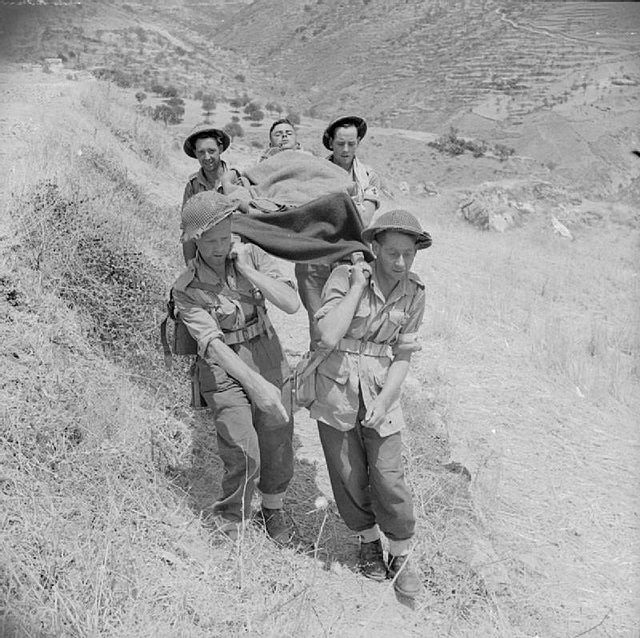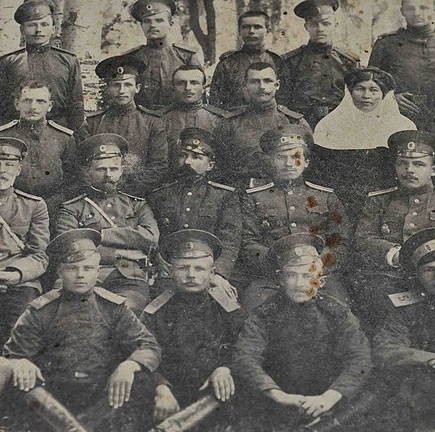
by Richard Subber | Feb 25, 2023 | American history, Book reviews, Books, History, World history
engrossing, but not Larson’s best…
Book review:
Dead Wake: The Last Crossing of the Lusitania
by Erik Larson (b1954)
Crown Publishers, New York, 2015
430 pages
I’m a fan of Erik Larson, starting with The Devil in the White City. Dead Wake offers a similar reading experience in Larson’s “no frippery” prose, and with a consistent tension that makes it a page turner.
I confess that it’s hard to avoid the somewhat deadening spoiler in this story: from Page 1, we know how it’s going to end. Torpedoed by Germany’s U-20, the Lusitania went down in about 18 minutes. Larson’s approach is exclusively chronological; it’s not a bad thing, but I found myself almost thinking out loud—“let’s get on with it”—as I navigated through the certainly more than adequate number of anecdotal scenes involving the ill-fated passengers and their clothing/meals/flirtations/premonitions/self-assurances…
Full disclosure: to the end, I was rooting for passenger Theodate Pope to get some love in her life. On the other hand, I now know far more than I care to know about President Wilson’s mushy courting of Edith Galt (who became his second wife).
The thing is, Larson tells a great yarn here but he doesn’t invite the reader to grapple with it. It falls short of shattering, consequential drama. The sociable elements—the almost chatty context—of much of his tale seem to displace full engagement with the terror of the event, and the outcomes that it hastened.
Larson tries to invest this story with solemnity, respect, and understanding.
Dead Wake is a dutiful—indeed, engrossing—account, but it doesn’t quite rise to the occasion.
* * * * * *
Book review. Copyright © Richard Carl Subber 2023 All rights reserved.
Play review: A Doll’s House
Henrik Ibsen’s classic on abuse…
–
Writing Rainbows: Poems for Grown-Ups with 59 free verse and haiku poems,
and the rest of my poetry books are for sale on Amazon (paperback and Kindle)
and free in Kindle Unlimited, search Amazon for “Richard Carl Subber”
* * * * * *

by Richard Subber | Jan 23, 2023 | Book reviews, Books, History, World history
a wonkish analysis of combat…
Book review:
Military Power:
Explaining Victory and Defeat in Modern Battle
by Stephen Biddle
Princeton, NJ: Princeton University Press, 2004
337 pages
Military Power is a fastidiously wonkish analysis of combat and military power.
Biddle makes his case for considering that “force employment,” i.e., combat doctrine and tactics, is at least as important in understanding the outcomes of battle as the count of who has the most guns and the biggest armies.
Earlier authors might have called it “leadership.”
Biddle offers remarkably detailed blow-by-blow commentary about the second battle of the Somme River in 1918, the Allies’ Normandy breakout in 1944, and Operation Desert Storm in 1991.
It’s not an easy read. Military Power will reward the reader who wants to know more.
* * * * * *
Book review. Copyright © Richard Carl Subber 20232 All rights reserved.
Book review:
The Adventures of Sherlock Holmes
from the agile mind
of Arthur Conan Doyle
–
My first name was rain: A dreamery of poems with 53 free verse and haiku poems,
and the rest of my poetry books are for sale on Amazon (paperback and Kindle)
and free in Kindle Unlimited, search Amazon for “Richard Carl Subber”
* * * * * *

by Richard Subber | Dec 23, 2022 | Book reviews, Books, History, Politics, World history
“the invisible hand,” not so much
Book review:
The Classical School:
The Birth of Economics in 20 Enlightened Lives
by Callum Williams
New York: PublicAffairs/Hachette Book Group, 2020
277 pages
The Classical School is a readable, suitably deep dive into the lives, the thinking, and the impacts of famous economists and non-economists in history, and you’ve heard of many of them (I recognized 14 of the 20 subjects).
“Economics” wasn’t always “the dismal science.” There was plenty of ruminative exploration of commercial and political issues that are the historic and current foundation of economics.
Most of the men and women highlighted in The Classical School were right some of the time, and wrong some of the time.
It’s like that right now.
You will learn compellingly interesting stuff from Williams.
F’rinstance, Adam Smith, in his The Wealth of Nations, mentions “the invisible hand” only once, and he does not use it to mean that an unfettered “free market” will always make things turn out right. (p. 64)
* * * * * *
Book review. Copyright © Richard Carl Subber 2022 All rights reserved.
social media making America stupid…
Jonathan Haidt explains in The Atlantic
–
As with another eye: Poems of exactitude with 55 free verse and haiku poems,
and the rest of my poetry books are for sale on Amazon (paperback and Kindle)
and free in Kindle Unlimited, search Amazon for “Richard Carl Subber”
* * * * * *

by Richard Subber | Oct 23, 2022 | Book reviews, Books, History, World history
those tricksters…
Book review:
The Man Who Never Was
by Ewen Montagu
Philadelphia, PA: J. B. Lippincott Company, 1954
This is the original first-hand account of “Operation Mincemeat,” the classic World War II intelligence caper that duped Hitler and his military commanders into believing that the Allies would not attack Sicily in July 1943. You know how it all turned out: the Allies captured Sicily after extended combat with about 23,000 Allied casualties and about 165,000 German and Italian casualties.
Montagu led a small group of ingenious British planners who managed to put false documents on a corpse (“the man who never was”) that drifted ashore in southern Spain and gave the Germans every good reason to think that the phony invasion plans were real.
The true identity of the fictitious “Major William Martin” is not revealed in this book, and later there was some dispute about it. Montagu himself wrote that the real man who served his country in death was Glyndwr Michael, a homeless man from Wales.
The Man Who Never Was is a simply written account that reports the meticulous planning and the insightful intelligence assessments of how the Germans would react to the false documents planted on the corpse.
Montagu frankly expresses, seemingly in typical British unemotional remarks, how wildly happy he and his crew were that Operation Mincemeat was a spectacular success. Lots of Allied veterans who fought on Sicily, and their families, can be thankful for that.
* * * * * *
Book Review. Copyright © Richard Carl Subber 2022 All rights reserved.
“Many waters cannot quench love.”
Love will rise to meet you…
(what you hear is poetry)
Book review: St. Ives
by Robert Louis Stevenson
–
As with another eye: Poems of exactitude with 55 free verse and haiku poems,
and the rest of my poetry books are for sale on Amazon (paperback and Kindle)
and free in Kindle Unlimited, search Amazon for “Richard Carl Subber”
* * * * * *

by Richard Subber | Sep 26, 2022 | History, Human Nature, Power and inequality, World history
the doleful tally…
“In the last 3,421 years
of recorded history
only 268 have seen no war.”
from The Lessons of History (1968) by Will and Ariel Durant, p. 81.
Sadly, an update changes only one of the numbers in the Durants’ doleful tally: we now have 3,477 years of recorded history.
It’s obvious that humankind can’t figure out how to study war no more.
* * * * * *
Copyright © Richard Carl Subber 2022 All rights reserved.
Book review: The Comanche Empire
the other story of the American West…
–
Writing Rainbows: Poems for Grown-Ups with 59 free verse and haiku poems,
and the rest of my poetry books are for sale on Amazon (paperback and Kindle)
and free in Kindle Unlimited, search Amazon for “Richard Carl Subber”
* * * * * *

by Richard Subber | Sep 23, 2022 | Book reviews, Books, History, Politics, World history
the blood of countless victims…
Book review:
Setting the East Ablaze:
Lenin’s Dream of an Empire in Asia
by Peter Hopkirk
New York: Kodansha International, Ltd., 1984, 1995)
252 pp
Setting the East Ablaze is a great complement to Hopkirk’s more historic treatment of the perennial Asian conflicts, The Great Game.
One wonders whether there is any region of the world that couldn’t be the setting for this kind of relentlessly detailed treatment of the self-serving and violent vagaries of human conceit and avarice that have ploughed the earth and turned under the blood of countless victims.
You can learn a lot in reading this book, but you might not be surprised.
* * * * * *
Book review. Copyright © Richard Carl Subber 2022 All rights reserved.
Book review:
Harriet Beecher Stowe: A Spiritual Life
A thought leader in the 19th century…
by Nancy Koester
–
As with another eye: Poems of exactitude with 55 free verse and haiku poems,
and the rest of my poetry books are for sale on Amazon (paperback and Kindle)
and free in Kindle Unlimited, search Amazon for “Richard Carl Subber”
* * * * * *





